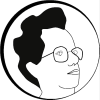
Restrictions on deaf people - real and imaginaryIntroductionThere are some restrictions on deaf people - some things which they cannot do because hearing is really needed to do those things. In addition, some countries have laws, which make it illegal for deaf people to do some other things. There are also several things, which deaf people can do and actually do, but the general public believes that they cannot do. For example, hearing people, who knew no deaf persons previously, often are surprised to be informed that a deaf person actually drives a car. The purpose of this document is to list frequently-occurring misconceptions, legal restrictions and tell about some activities in which deaf people indulge, contrary to misconceptions. Misconceptions about the Deaf and HOHHere is a short list of misconceptions about the Deaf and HOH:
Legal restrictions on car driving by the deafIsrael (as of 1993)Deaf drivers of private cars must have:
Japan (as of 1984)Must be able to hear (by any means) the sirens of ambulances and clear the way to them. Deaf pilots(See also Deaf Airplane Pilots.) Question to Henry Kisor, a deaf pilot, from Marie: Are you really a pilot or do you want this info for other reasons? The reason I ask is because I'd like to know... if you are a pilot, how do you handle talking to air traffic controllers while in flight? I'm hoh and I've wanted to take flying lessons for the longest time, but I don't see how to get around the obvious problem of not being able to understand what the air traffic controllers are saying, and that could be, well, slightly life-threatening. Henry Kisor's answer: Deaf pilots are just another kind of "NORDO" (no-radio) pilot. Only 8 per cent of American airspace below 18,000 feet requires communication with an air traffic controller, and this mostly around big-city airports. Most smaller airports do not require radio communications at all, and many of the airplanes flown out of these airports do not even have radios. I'm a member of the International Deaf Pilots Association, which currently has 45 members (out of some 70 who hold FAA pilot certificates bearing the restriction "Not Valid for Flights Requiring the Use of Radio. "). We are culturally deaf, orally deaf, bi-bi, HOH and lately deafened. We don't discuss these things, however; we reserve our flaming to the subject of "which is better, high-wing Cessnas or low-wing Pipers?" Some of us who can speak use our radios to announce our intentions when entering the landing pattern, just to let other pilots know we're around. We can't receive, of course. Many of us have landed at controlled airports by first telephoning the tower from another airport and requesting permission to make a light signal landing (the tower issues instructions by "shooting" colored light beams at the incoming airplane). If you're serious about learning to fly, go for it, even if you are deaf. You might have to search a little to find a flight school or instructor willing to take you on (the ADA hasn't made much inroads into aviation) but that should not be difficult. If you like, E-mail me (use Google or another Web search engine to locate my contact information) and I'll send you a copy of the summer issue of the International Deaf Pilots Assn. newsletter, which has some good stories. Leave me your mailing address in a private message. I have started using the relay system to obtain aviation weather from FAA flight service stations. To my astonishment, it works, although the language is very complex and full of jargon. I simply tell the relay operator to tell the briefer in the very beginning, "This call is from a deaf pilot," (Contributed by Henry Kisor at 20 Mar 1995.) Deaf Medical StudentsQuestion: Answer: (Contributed by Henry W. Meyerding at 8 Jun 1995.) Deaf Medical DoctorsThere are several physicians in USA who are deaf. One is a family practitioner in Fremont, California. Another is a medical student at University of Minnesota (not sure what year she's in). There was a woman from Kentucky who has a degree in medicine, but am not sure if she's a practicing physican or works in the field of medicine. Another deaf man is an otologist in Maryland. My dentist is deaf, and there is a list of deaf dentists. I also know of several chiropractors that are deaf. In fact I am planning to do a piece on a deaf chiropractor that lives in Kansas City. If one tells you people with disabilities are turned away from the medical profession, challenge them to back up their statements with facts. And if you are turned away from medical school, go out and get a lawyer. (Contributed by Barry Strassler, Silent News at 24 May 1995.) Last update date: 1996 Nov 30 |
DonationDid this Web site help you? If yes, you may want to consider making a donation to me. When making a donation, please tell me what additional information could I add to the Web site, to make it even more helpful for you and people like you. |